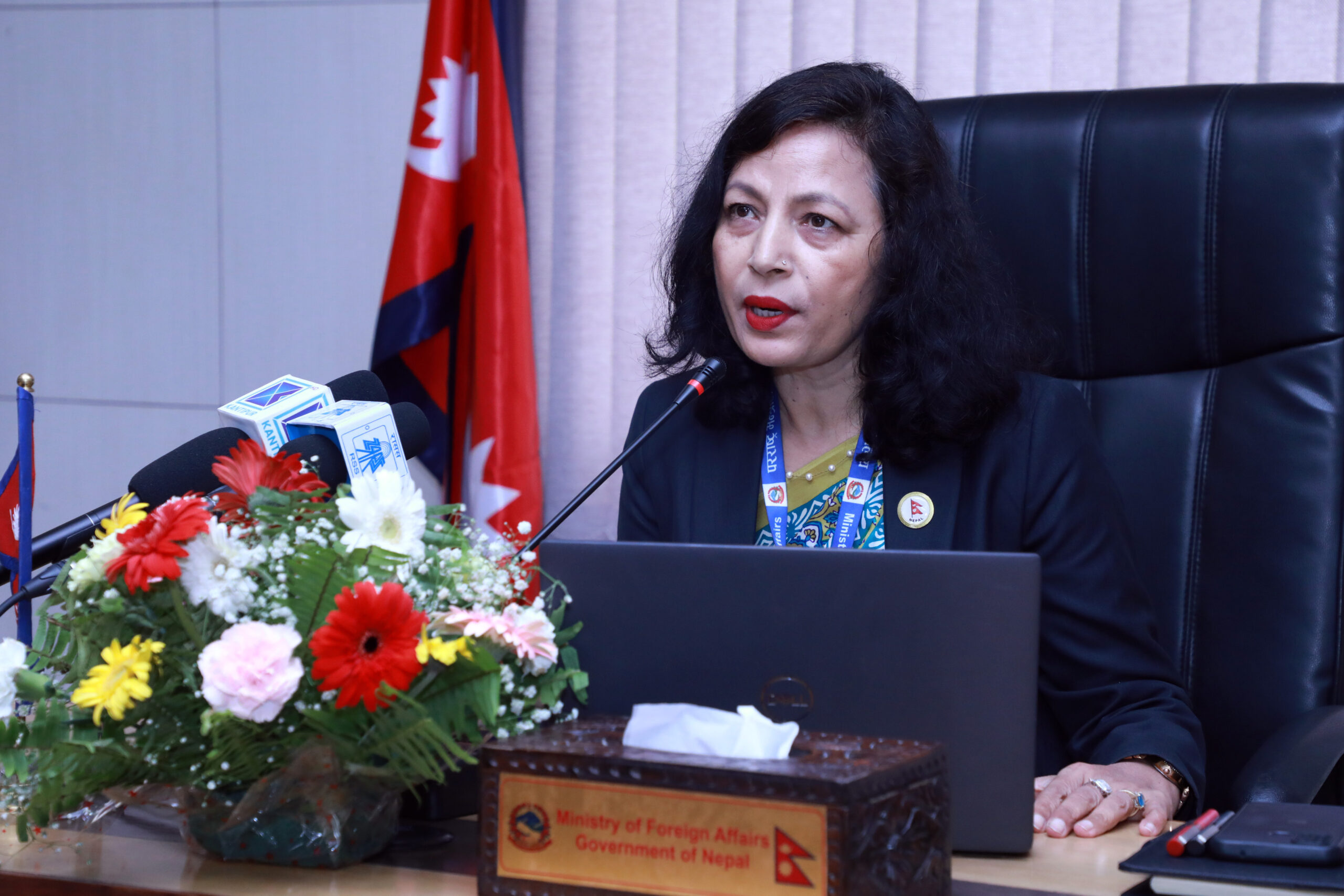KATHMANDU: Last week was marked by significant developments across various sectors in Nepal, from diplomacy and sports to public health and legal matters.
On the diplomatic front, Sewa Lamsal received approval from the Parliamentary Hearing Committee to become Nepal’s Ambassador to Belgium.
This decision followed a comprehensive hearing process, during which Lamsal presented her action plan aimed at safeguarding and promoting Nepal’s national interests in multilateral forums.
This appointment is crucial as it positions Lamsal to enhance Nepal’s presence in international discussions, especially in a pivotal European nation.
In sports, the SAFF Women’s Championship concluded with Bangladesh clinching the title after defeating Nepal 2-1 in a hard-fought final at Dasharath Stadium.
Despite Nepal’s impressive efforts, including a quick equalizer from Amisha Karki, they fell short, marking another second-place finish in the tournament.
Overall, last week’s events underscore a nation grappling with both challenges and progress across various fronts, from diplomacy and sports to governance and public health.
This outcome highlights the ongoing challenges Nepal faces in breaking through to the championship level, having now been runners-up multiple times.
On the legal front, the Supreme Court issued an interim order concerning a controversial land donation intended for the CPN-UML party office in Kirtipur.
The case, brought to the court’s attention by Advocate Gyan Bahadur Basnet, raises questions about legality and governance, illustrating ongoing tensions surrounding political party financing and land use in Nepal.
The court’s willingness to summon both parties for discussion signifies the importance of this issue.
Prime Minister KP Oli addressed concerns about rising lawlessness during a ceremony for the Armed Police Force, emphasizing the government’s commitment to maintaining order and preventing divisive actions within the society. His remarks reflect an ongoing struggle against attempts to sow discord among the Nepali people, especially in a politically charged environment.
In health news, the Epidemiology and Infectious Diseases Control Division reported the presence of three dengue virus serotypes in Nepal, underscoring the public health risks still prevalent as the season changes.
Dr. Gokarna Prasad Dahal warned that the risk of dengue remains until mid-November, calling attention to the need for continued vigilance as mosquito populations decline.
Minister Balaram Adhikari announced that the Problematic Cooperative Management Committee has refunded over 6,155 depositors from troubled cooperatives, reflecting ongoing efforts to address financial instability in this sector.
However, with a substantial sum still owed to many depositors, the challenge of restoring trust and financial security remains.
Meanwhile, the recent celebration of Tihar showcased a cultural shift as many Nepalese opted for electric lights over traditional clay lamps, reflecting changing consumption patterns influenced by modernization.
Former Chief Secretary Baikuntha Aryal was acquitted of corruption charges by the Special Court, a significant legal decision given the high-profile nature of the case.
This verdict, coming after extensive hearings, points to a complex landscape of accountability in government and the judiciary.
Lastly, in sports, Nepal’s cricket team achieved a remarkable victory against Australia in The Hong Kong Sixes tournament, building on their earlier success against England.
These wins not only boost national pride but also highlight the growing competitiveness of Nepal on the international cricket stage.
Meanwhile, the recent celebration of Tihar showcased a cultural shift as many Nepalese opted for electric lights over traditional clay lamps, reflecting changing consumption patterns influenced by modernization.
This evolution in festive practices illustrates the blending of tradition and contemporary lifestyle in Nepal.
Overall, last week’s events underscore a nation grappling with both challenges and progress across various fronts, from diplomacy and sports to governance and public health.









Comment